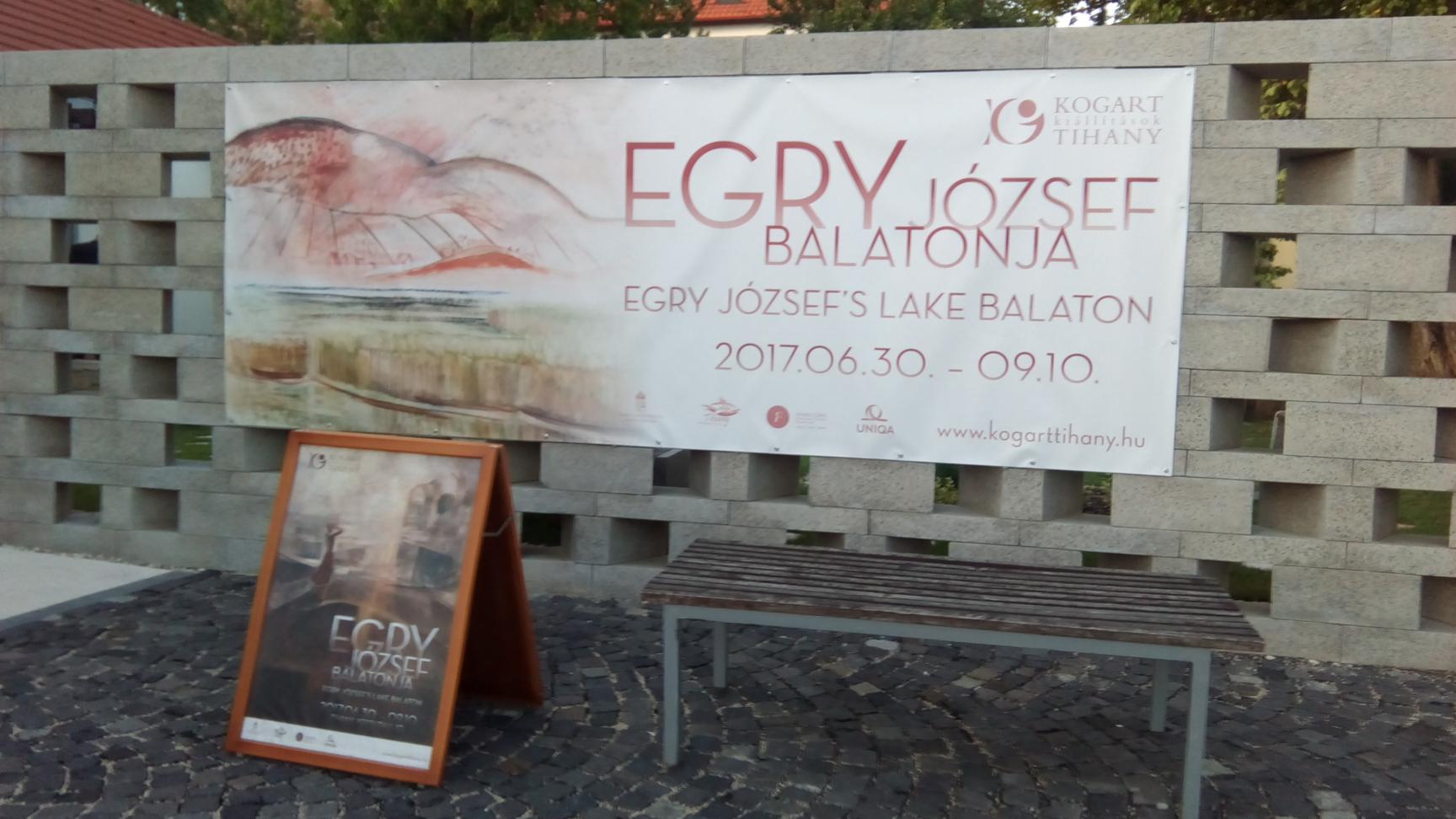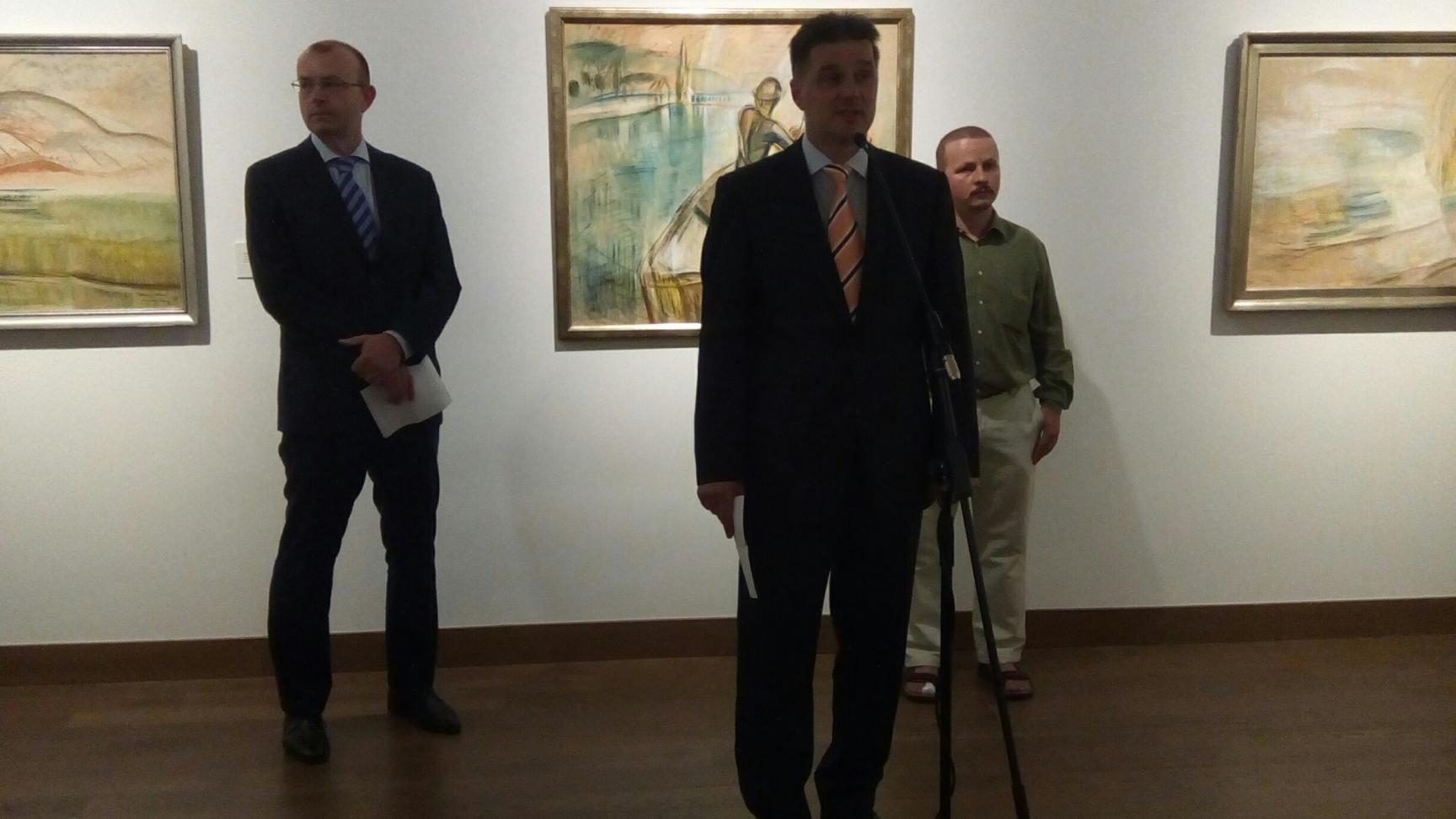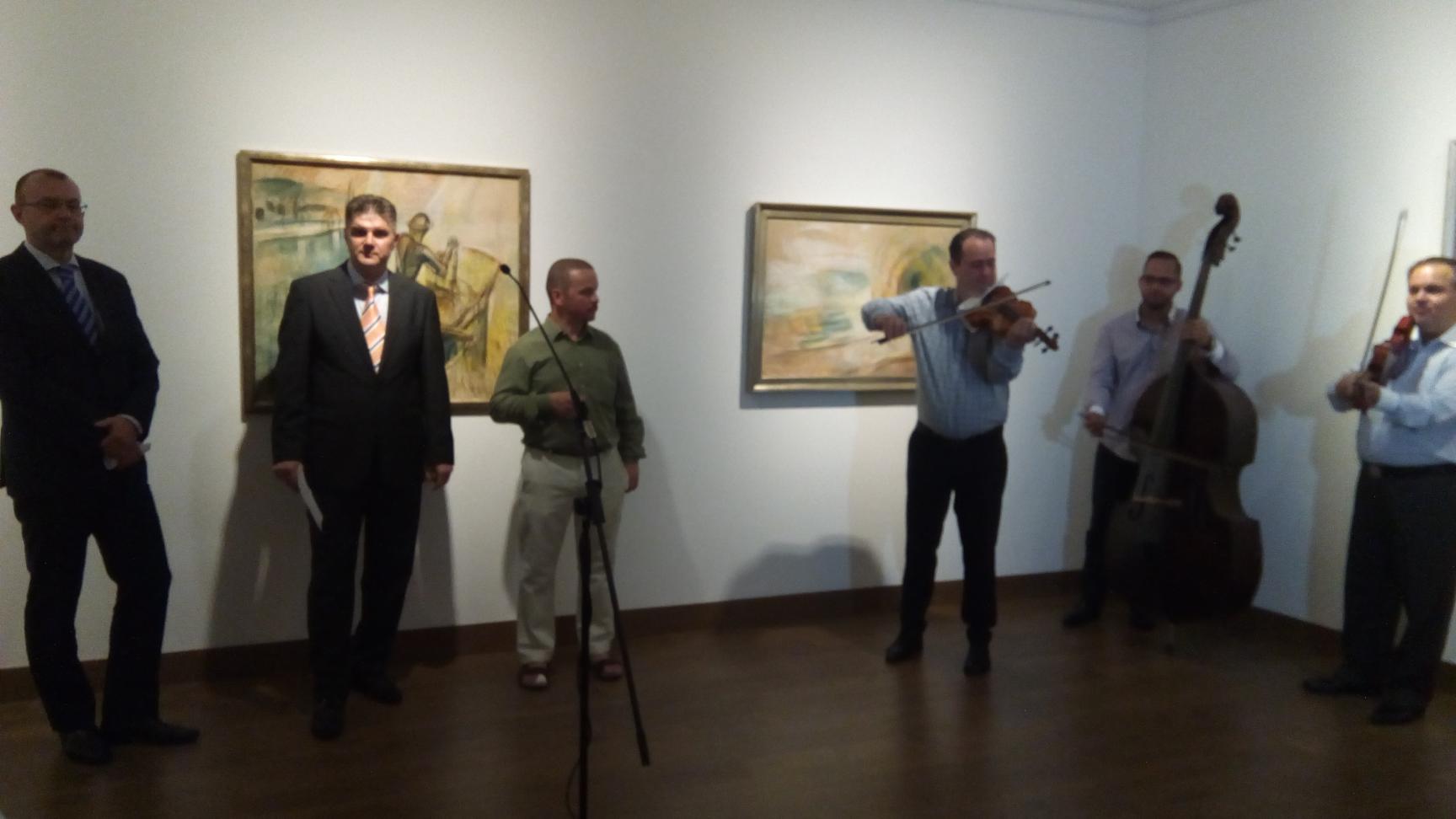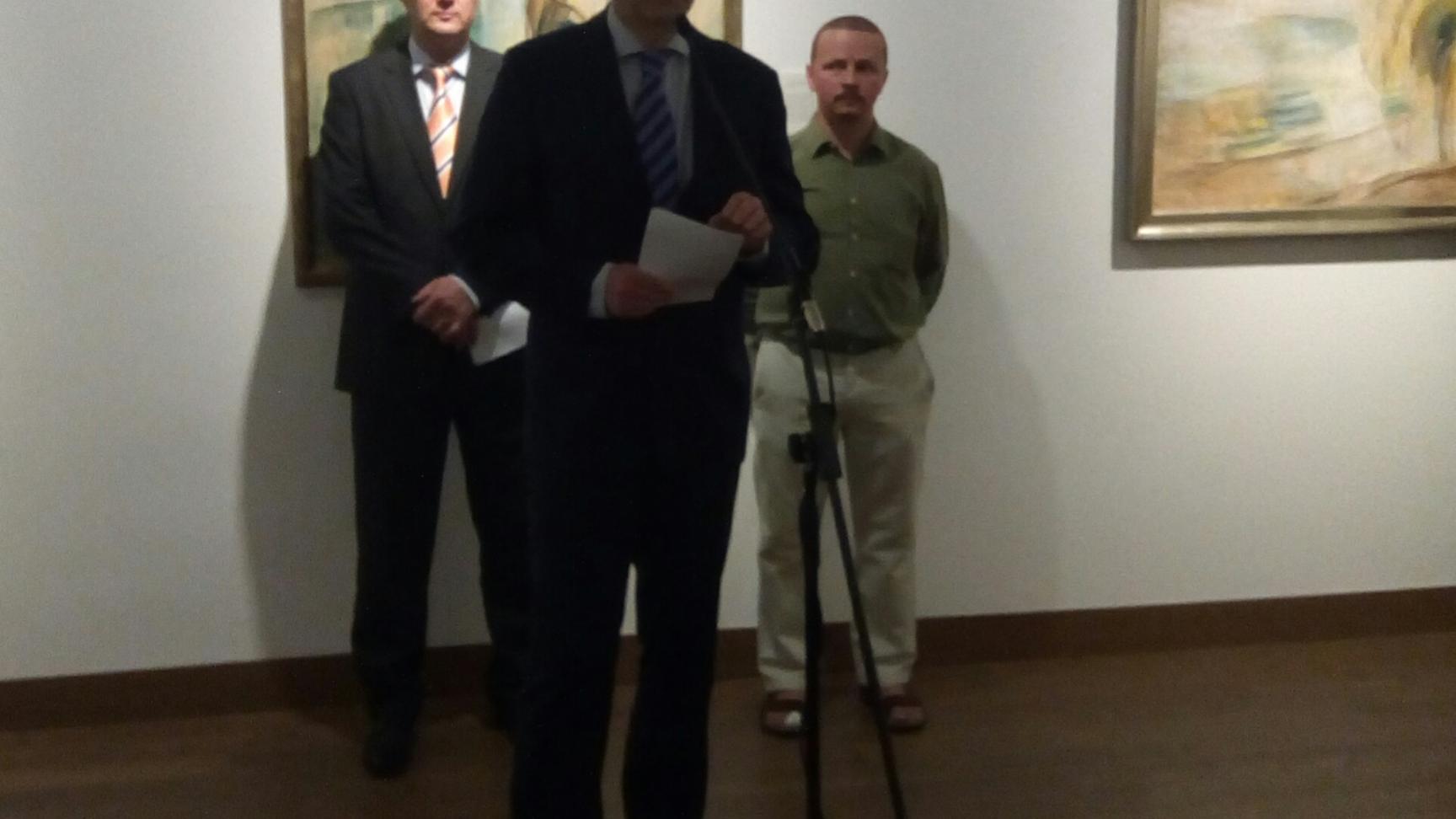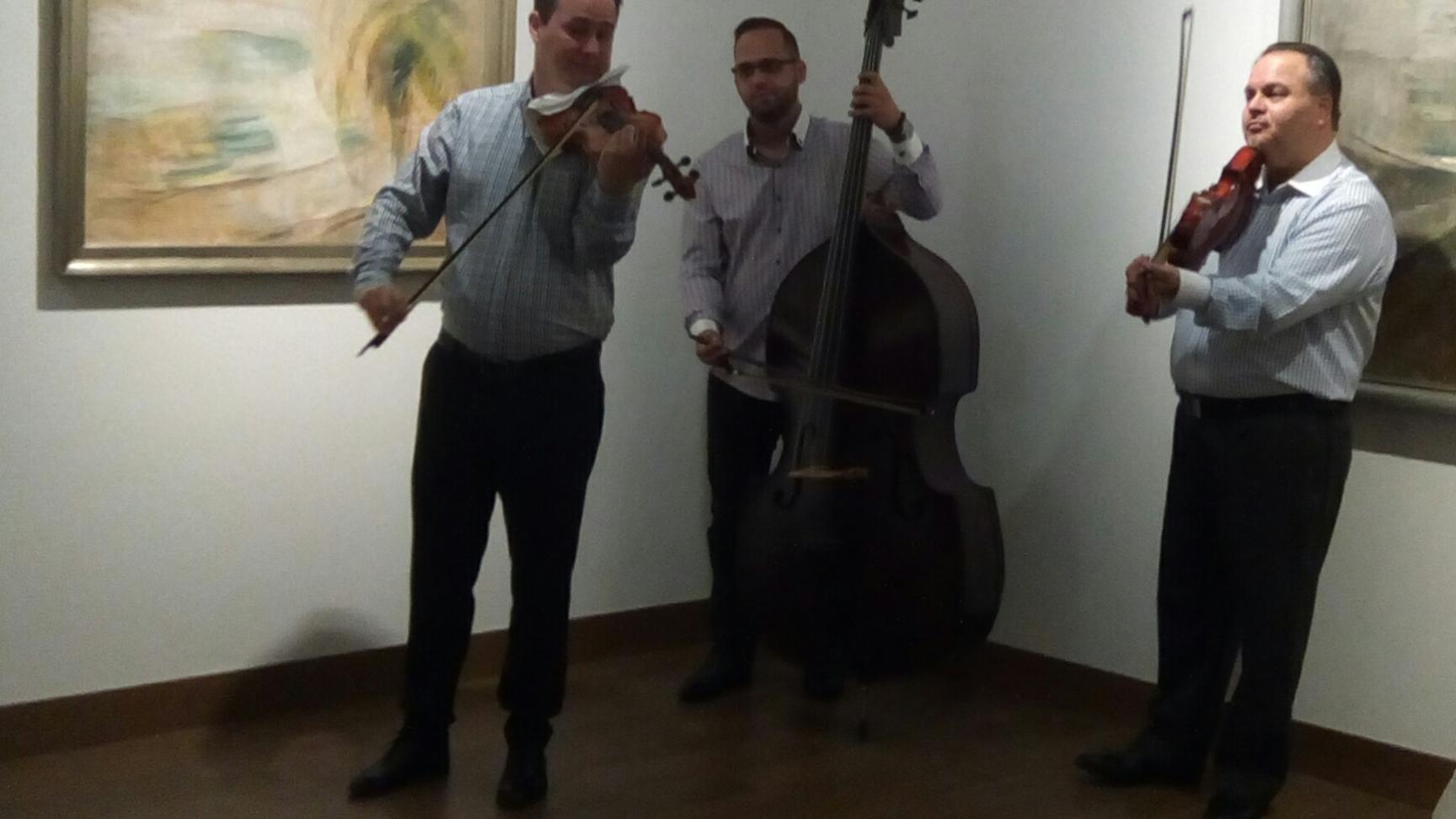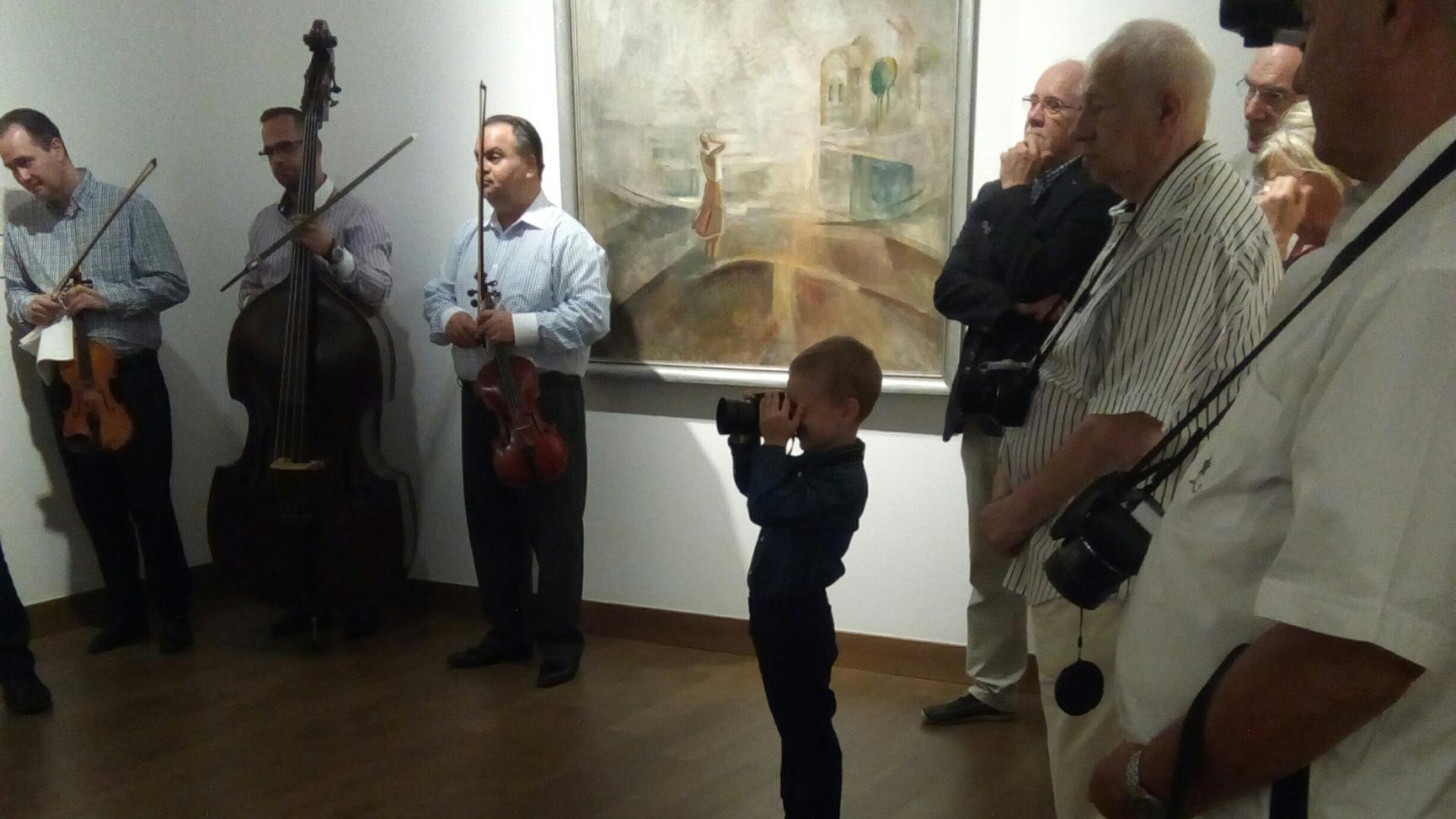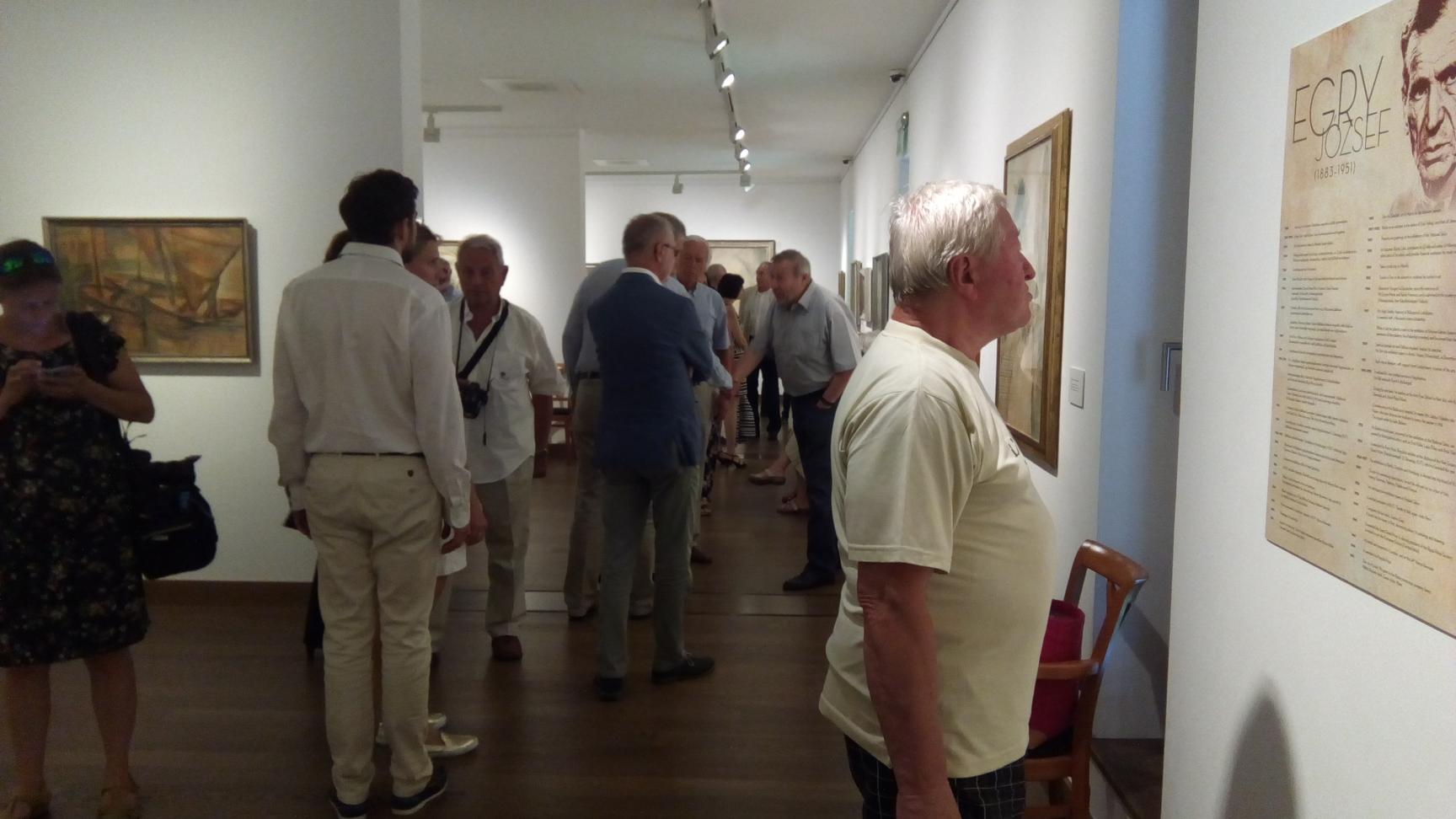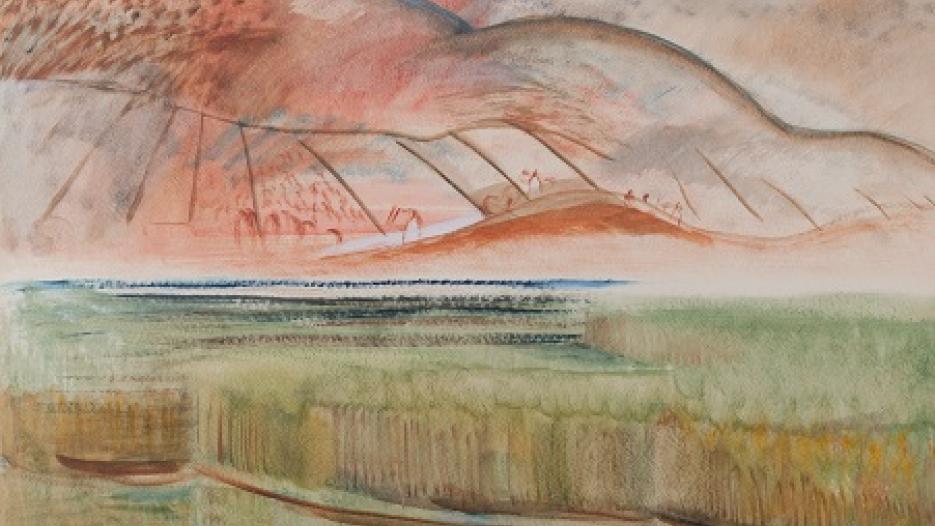
József Egry (1883–1951) is one of the most individual modern Hungarian painters. Extremely rich in techniques and themes, his oeuvre is marked by the innovative spirit of the early 20th century. Following his stay in 1916 at the Badacsony military hospital, where he was recuperating from an illness he contracted during World War One, Lake Balaton became the focus of his art from the early 1920s. He not only discovered the key theme of his oeuvre in Badacsony, but also met his later wife, Juliska Pauler.
The lake’s wide spaces, light-filled atmosphere, the play of light and air, simultaneously made him aware of the pure power of light, luminous colours and the presence of a cosmic world order, whose compositional equivalent he sought and created in the next, mature phase of his career. Technically, these works fuse the light painting of impressionism, the autotelic image-making principle of post-impressionism, and the energy of expressionism, while the beliefs that inform them include pantheism, the cult of the sun, the spiritual version of existentialism.
The view in Egry’s paintings is not a form but an energy, with humans as integral parts of the scenery. His works are informed by this organic approach to the scenery, man’s direct connection to nature, the cosmic dimension of life; they find the perfect context to be displayed in when they are exhibited in Tihany, a scene that bonds mountain, water and sky, a place imbued with history and a spiritual tradition it exudes to this day. The effect of Lake Balaton and the Inner Lakes is particularly keen in Tihany, with the water surfaces etching their undulating pattern into the scenery, or reflecting it in their smoothness, slivering the light and scattering its shards.
Featuring more than 30 works from the collections of major Hungarian public and private collections, the exhibition is realized with the cooperation of the Kovács Gábor Art Foundation and the Rómer Flóris Museum of Art and History, Győr, with support from the Ministry of Human Resources. It is on view between 30 June and 10 September, 2017.
